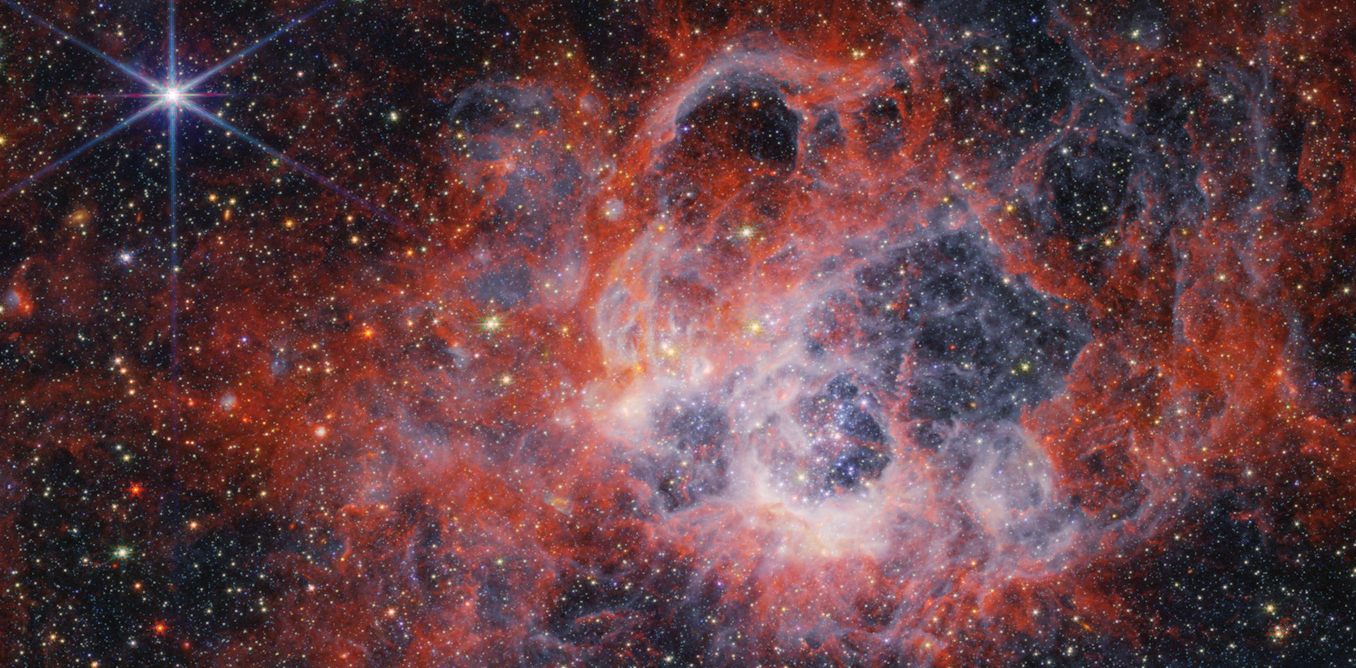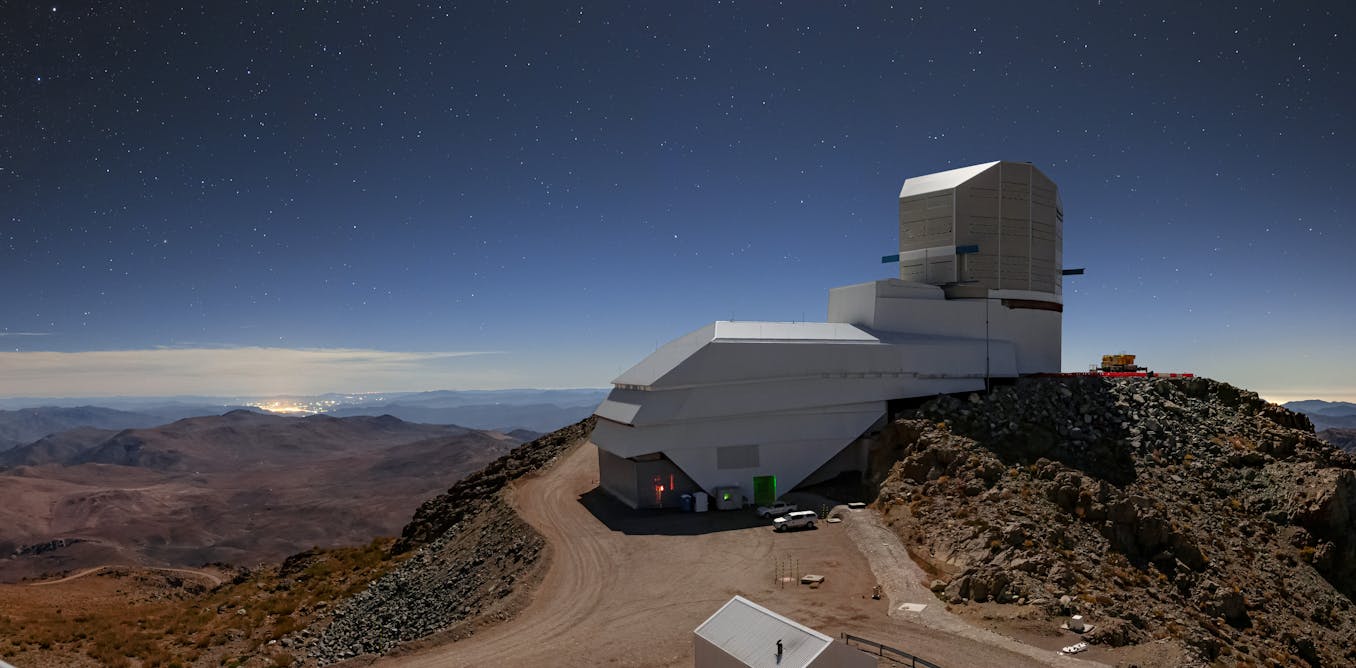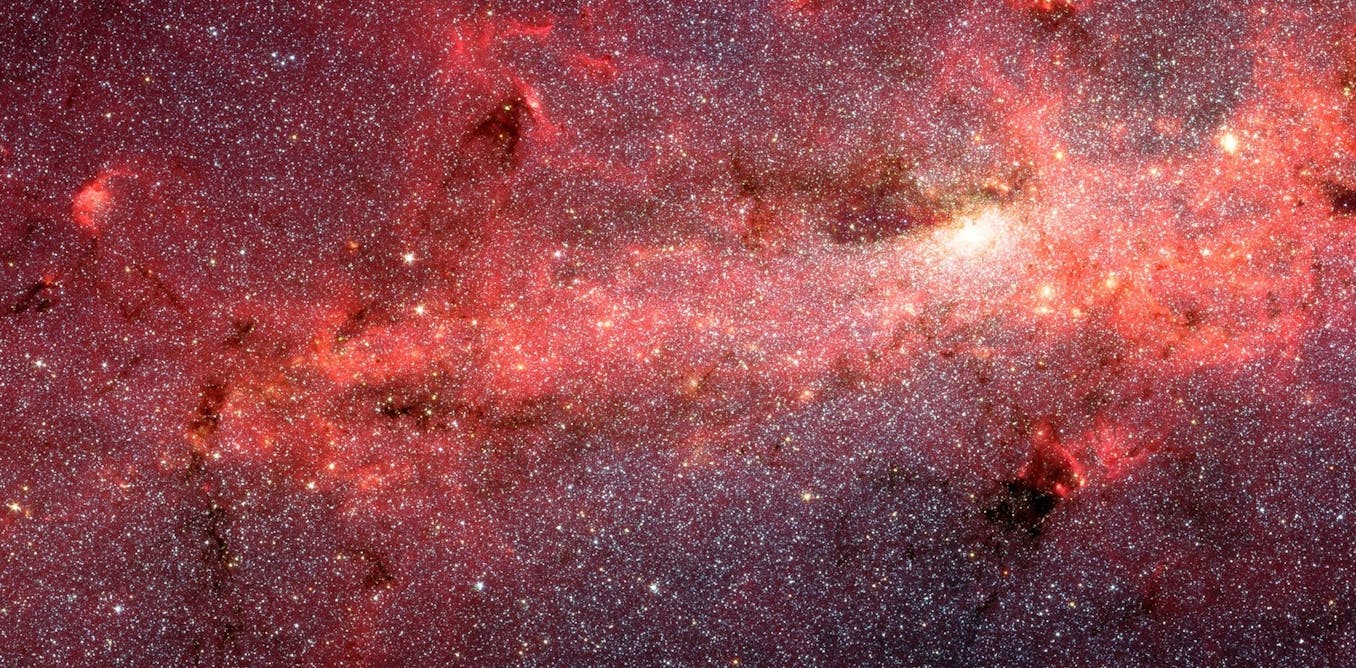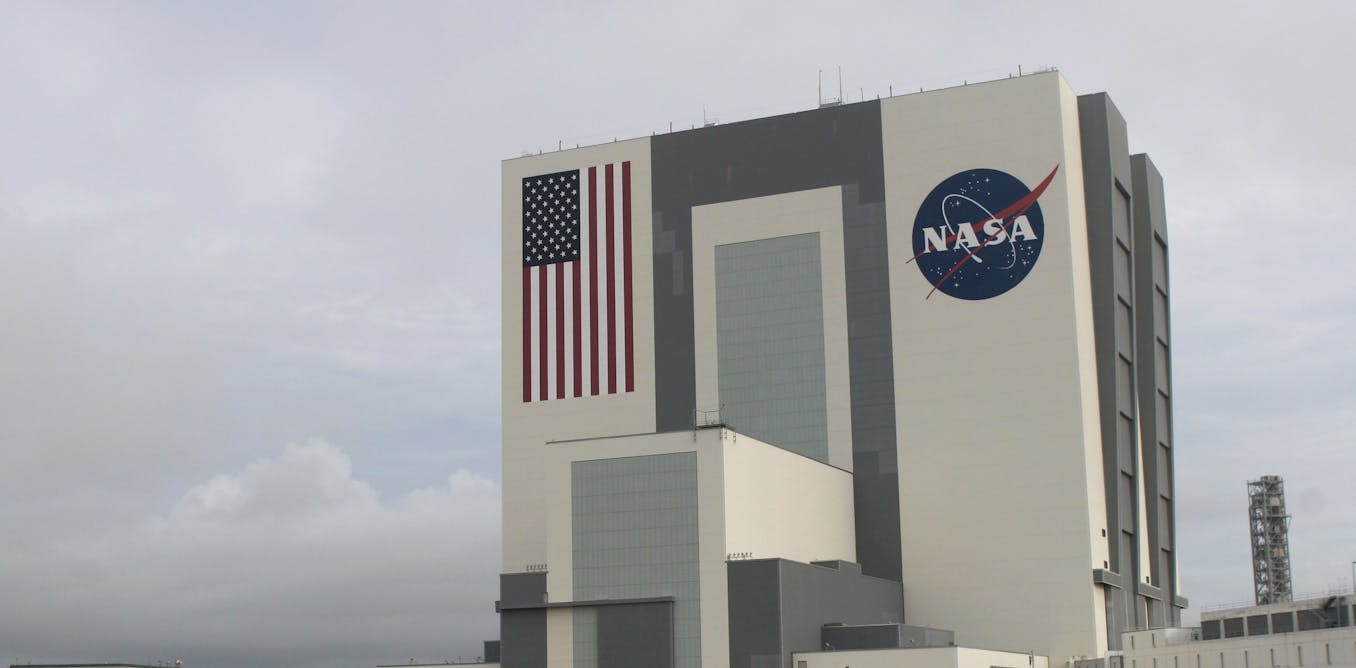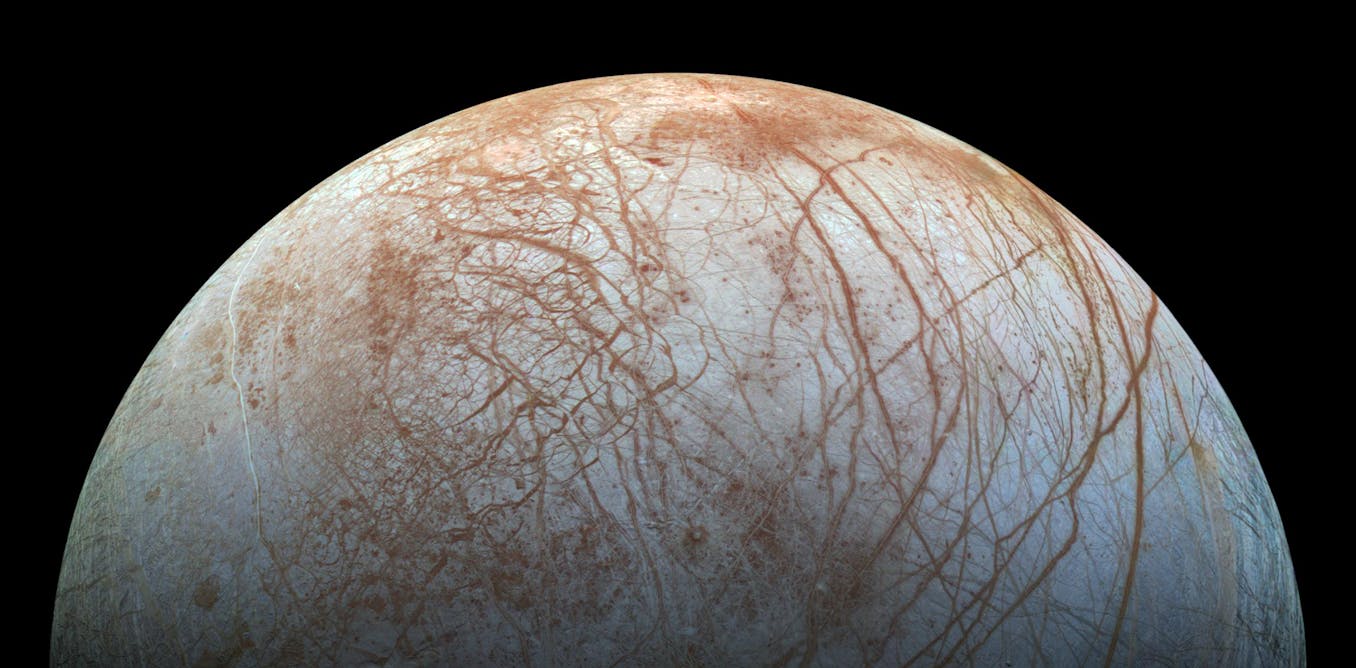The Vera C. Rubin Observatory will help astronomers investigate dark matter, continuing the legacy of its pioneering namesake
Vera C. Rubin’s research into stars in galaxies led to the modern understanding of dark matter.
June 24, 2025 • ~9 min
How do atoms form? A physicist explains where the atoms that make up everything around come from
Almost everything on Earth is made up of atoms, but where do these fundamental building blocks come from?
June 23, 2025 • ~8 min
Astronomy has a major data problem – simulating realistic images of the sky can help train algorithms
To make a truly realistic fake picture of a galaxy, you can model exactly how light particles travel through the atmosphere and telescope to reach its sensor.
June 23, 2025 • ~9 min
Is Mars really red? A physicist explains the planet’s reddish hue and why it looks different to some telescopes
Mars isn’t a bright, fire-engine red, but the iron oxide in its rocks makes it appear redder than other planets, especially from afar.
June 16, 2025 • ~7 min
Where is the center of the universe?
As the universe expands, it feels like it must be spreading out from some initial point. But a physicist explains why that’s not how it works. Hint: space-time is involved.
June 10, 2025 • ~8 min
Early visions of Mars: Meet the 19th-century astronomer who used science fiction to imagine the red planet
In the 19th century, astronomers could see Mars through telescopes, but not clearly. Some used their imaginations to fill in what the blurry images couldn’t convey.
June 6, 2025 • ~9 min
A new observatory is assembling the most complete time-lapse record of the night sky ever
The Vera C. Rubin Observatory will capture enough detail to see a golf ball from 25km away.
June 5, 2025 • ~6 min
Uncertainty at NASA − Trump withdraws his nominee for administrator while the agency faces a steep proposed budget cut
Under the proposed budget, several major projects, such as the Mars Sample Return and the Space Launch System, would face cancellation.
June 3, 2025 • ~8 min
New model helps to figure out which distant planets may host life
As NASA rolls out more powerful telescopes in the future, scientists will need a way to determine where to point them. A new approach could help.
June 2, 2025 • ~11 min
/
36

